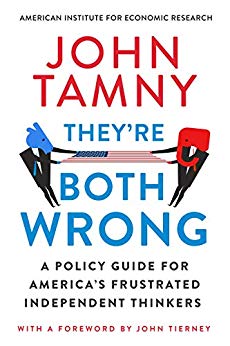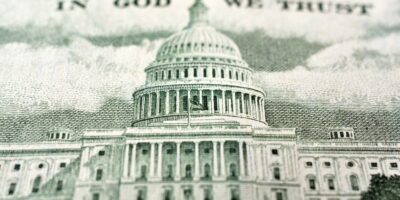The Paranoid Fear of Intellectual Property Theft

“If you have a good idea, you can bet someone else doesn’t think it’s good.” Those are the words of the late Gary Starkweather, who died on December 26th at the age of 81.
Starkweather was the inventor of the laser printer, and knew of what he spoke. Having devised a much speedier way to print out documents at Xerox, Starkweather’s vision earned him scorn inside the company. As a New York Times obituary put it, “Because his idea ventured away from the company’s core business, copiers, his boss hated it. Mr. Starkweather was told that if he did not stop working on the project, his entire team would be laid off.”
Thankfully Starkweather wasn’t so easily deterred. He persisted, and as a Wall Street Journal obituary explained it, his “finesse in maneuvering around” the boss mentioned above led to the release of the Xerox 9700. The new product became a huge hit, ultimately “generating more than $1 billion of annual revenue” for Xerox.
The economic lessons that spring from Starkweather’s creation are endless, but for the purposes of this column they’ll be limited to growing paranoia on the part of thinkers and politicians about “China.” Even though the most dynamic businesses in the world (American businesses) have long been expanding their sales and manufacturing presence in China, those paid to think for a living, and those paid to think and do for us for a living, continue to wring their hands about “forced technology transfers” from U.S. businesses to those in China, along with intellectual property “theft.”
As one would expect from thinkers and politicians, they think we should ignore the doings of actual businesses with some of the largest market caps in the world, and instead listen to them. More specifically, thinkers and politicians who rarely paid mind to “China” and all its alleged “theft” and “corruption” before the rise of mediocrities like Robert Lighthizer and Peter Navarro, have now become captive to their musings.
Sad is that some of the most important centers of opinion in all of the U.S. now direct significant real estate to the alleged thievery of American know-how by the Chinese. Saddest is how many self-described limited government conservatives have jumped on board with Navarro and Lighthizer in their support of tariffs and other limits on trade with an eye on stopping the Chinese.
The very individuals who used to wisely support what happens in the marketplace, and the actions of market-disciplined businesses operating within it, now want politics and PhD standards to govern the actions of businesses instead of businesses themselves. Translated, the very individuals whom the world’s best businesses would never hire now get to make decisions for the Apples, Nikes, Microsofts, and McDonald’s of the world.
So while the world’s best businesses have long seen China as a place to prosper while powerfully rewarding their shareholders, thinkers and politicians have told them they know better. You see, the Chinese are said to force businesses operating there to hand over company secrets, plus they’re said to steal proprietary technology (intellectual property) to the detriment of U.S. companies. Thinkers and politicians will essentially save American businesses from themselves. It’s hard not to laugh, except that the thinking and policy classes truly believe this. One can only hope that Starkweather’s story enters their highly narrow fields of vision, only to save them from their extraordinarily limited understanding of commerce.
Indeed, Starkweather’s development of the laser printer against all odds within the company employing him loudly reveals the obnoxious conceit driving the actions of thinkers and policymakers. Actual businesses would never presume to simplify what they do each day in pursuit or profits in the way that their minders presume to.
“Forced technology transfers”? Ok, but what would be forced? Inside any kind of successful business there’s rarely agreement among co-workers as to what is worthy, and what will be worthy, but the Chinese innately know exactly what American businesses to mug, and what to take from them while mugging? Have the thinkers and policymakers who believe the China line ever stopped to think just how difficult it would be for the Chinese to do what Americans naively accuse them of doing? Implicit in the “forced technology transfer” droolings of the thinkers is that picking stocks is easy, that somehow the present provides a clear understanding of the future. Except that it doesn’t.
Lest we forget about technology uniquely, when the 21st century began AOL was easily the most prominent technology company, Yahoo was right up there, Blackberry was on the verge of monopolizing the mobile phone market after vanquishing Nokia, and one of its most cutting edge competitors was Motorola and its rather showy “Razr” phone. The very individuals who for the most part couldn’t run the local bake sale show how little they know about how commerce works when they pretend that if “forced technology transfer” is taking place, how extraordinarily difficult it would be to know what to take. Goodness, Starkweather was nearly fired by his own company for having the temerity to develop the laser printer.
And then intellectual property “theft”? Ok, but what would they steal? As Starkweather knew intimately about a technology world that nearly rejected him, the good ideas are so often the ones that only appear good to great well after their implementation. What’s truly cutting edge and capable of changing how things are done will almost surely engender all manner of scorn when brought to the attention of others. In short, that which has the potential to drive huge profits will almost certainly be seen as so outlandish in the present as to require no protection at all. Few are going to steal what’s seen as ridiculous.
To which some who should know better will wring their hands about established products and processes being taken by the “Chinese.” Oh well, for one, if it’s imitable it’s probably not as great as many assume. For two, how insulting for thinkers and policymakers to presume American ingenuity is so easy to recreate. And for three, implicit in this notion that genius can be easily stolen and recreated is the mistaken presumption that the present mirrors the future. Except that it doesn’t, as evidenced by (among other things) how many confidently asserted that Blackberry would clean Apple and the iPhone’s clock. Fast forward to the present and Blackberry is worth $3 billion, while Apple’s net worth is over $1 trillion.
About all the hysteria among thinkers and policymakers with regard to China, readers can rest assured that the permanence of the internet means there will be a lot of sheepish thinkers and policymakers in the not-too-distant future. Though they claim a market-oriented bent, they’re in truth the latest to fall for the fatal conceit that always and everywhere trips up the deep thinkers whereby they substitute narrow knowledge for market knowledge. Simply put, markets never feared alleged “forced technology transfers” and IP “theft” in the way that thinkers and policymakers began to after Navarro and Lighthizer told them to.
This article originally ran at RealClearMarkets











